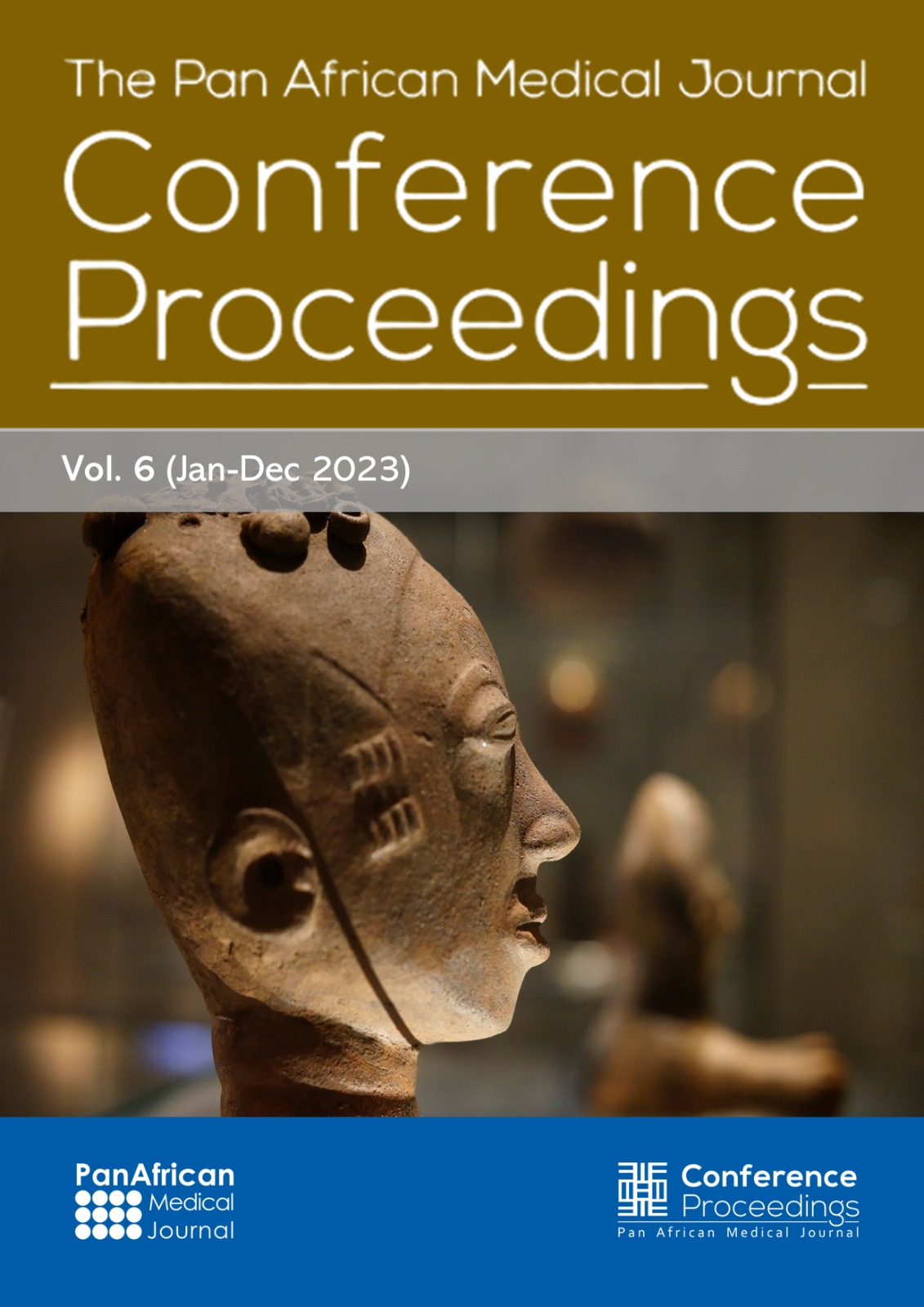Conference abstract
HbA1C and fasting glucose perform poorly as screening tests for diabetes in African immigrants: the Africans in America study
Pan African Medical Journal - Conference Proceedings. 2017:2(2).23
Aug 2017.
doi: 10.11604/pamj-cp.2017.2.2.41
Archived on: 23 Aug 2017
Contact the corresponding author
Keywords: Diagnosis, diabetes, Africans
Oral presentation
HbA1C and fasting glucose perform poorly as screening tests for diabetes in African immigrants: the Africans in America study
Jean Nepo Utumatwishima1,&, Rafeal Baker1, Brianna Bingham1, David Sacks1, Anne Sumner1
1National Institutes of Health, Bethesda, Maryland, USA
&Corresponding author
Jean Nepo Utumatwishima, National Institutes of Health, Bethesda, Maryland, USA
Introduction: as the diabetes epidemic crosses Africa, a major challenge is having an accurate assessment of the number of asymptomatic Africans affected. For decades, the OGTT has been considered the diagnostic standard for the detection of diabetes. However, the OGTT is expensive and time-consuming and alternatives which require only a single blood test have been championed, specifically HbA1C and fasting plasma glucose (FPG). Yet, the ability of these tests to detect diabetes in asymptomatic Africans is unknown. In Africa, the high prevalence of both sickle cell trait (SCT) and hemoglobin C trait may mitigate the diagnostic value of HbA1C. Furthermore, in African descent populations, FPG may not function well as a marker of asymptomatic diabetes. Working with African immigrants living in America, our goal was to use the 2h glucose (≥ 200 mg/dL) obtained during the OGTT as the diagnostic standard for diabetes, and determine the sensitivity of HbA1C (≥ 6.5%) and FPG (≥ 126 mg/dL).
Methods: all 321 African immigrants self-identified as healthy (67% male, age 38±10 (mean±SD), range 20-64y, BMI 27.6±4.5, range 18.2-42.4 kg/m2). The African region of origin of the participants was: 54% West, 24% Central, 22% East. Each participant underwent a 2h OGTT. In addition, hemoglobin electrophoresis was performed and HbA1C levels determined.
Results: the prevalence of previously undiagnosed diabetes was 6.5% (21/321). Among the people with diabetes, the prevalence of SCT and HbC trait was 38% (8/21) and 10% (2/21), respectively. The sensitivity of HbA1C and FPG to diagnose diabetes was: 19% (4/21) and 10% (2/21), respectively.
Conclusion: both HbA1C and FPG performed poorly as diagnostic tests for diabetes in asymptomatic African immigrants. Therefore, the extent of the diabetes epidemic in Africa may be worse than appreciated. Initiatives to identify feasible markers of hyperglycemia which perform well in an African context are urgently needed.








